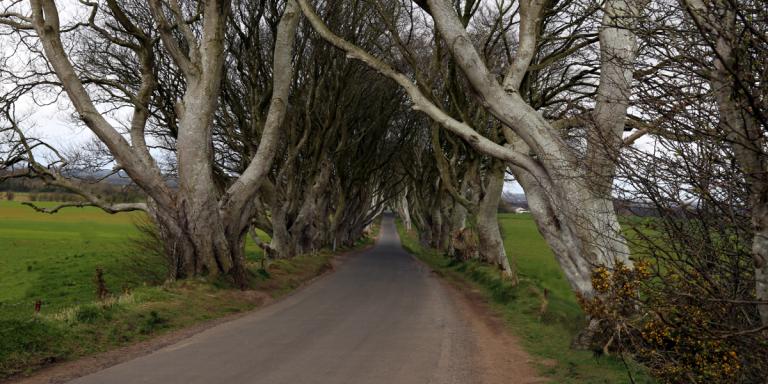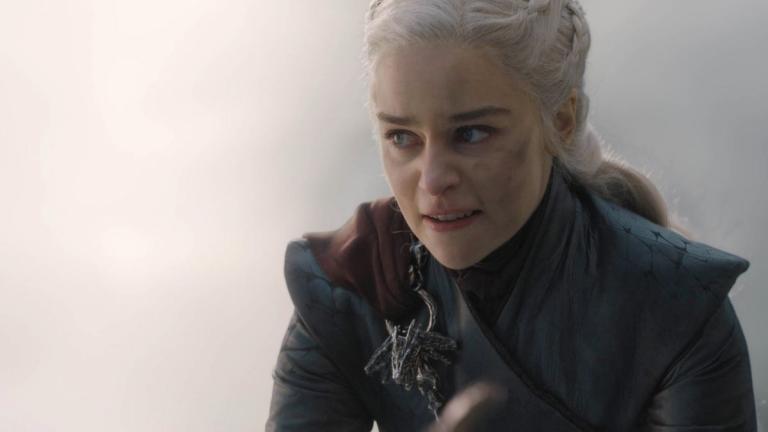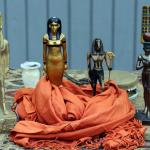Warning: this post is dark and full of spoilers. Proceed at your own risk.

After nine years and eight seasons, Game of Thrones is finally over. The Iron Throne has been destroyed. A new king has been crowned – and if you saw that one coming you must be the Three Eyed Raven yourself. The characters we have grown to know and love – and hate – are all doing things that, if not exactly what we wanted for them, are within the realm of plausibility.
But make no mistake: the game of thrones will continue in Westeros, because it always does.
I haven’t read the books and I probably won’t – I don’t have a lot of time for fiction, and it’s unlikely George R.R. Martin will ever finish them. But I’ve been a loyal Game of Thrones viewer since the very beginning, and like many of you, I have thoughts and opinions on the finale, on the final season, and on the series as a whole.
The problem with epic storytelling
From our earliest childhood, we learn there’s a formula to a story: a story has a beginning, a middle, and an end. We like it best when the end is “and they lived happily ever after” – one of the many lies adults tell to children.
The bigger the story, the harder it is to stick to that basic formula. How do you write a happy ending for every character? How do you write any ending for every character?
The bigger the story, the less dream-like snippet it is and the more it’s like real life. Good things happen, bad things happen, people die, and life goes on. Epic stories don’t end so much as they stop. And that opens the door for sequel after sequel until all the life is sucked out of the characters and the world, and the joy of reading or watching is gone.
Game of Thrones was never going to have a happy ending – we knew that from the moment Ned Stark was beheaded. But I don’t think most of us realized it couldn’t even have a satisfying ending. What we got was about as good as it could have been.
The descent of Daenerys Targaryen
I think the biggest complaint I heard this season was “I hate what they did with Dany!” We wanted the Breaker of Chains to be the good ruler we all want in fiction and in real life… and we conveniently forgot about all the people she killed on her journey from bartered bride to Queen of the Seven Kingdoms. I had forgotten about the crucifixions.
My friends who read the books tell me her internal dialogue reveals a darkness and an uncertainty that can’t easily be communicated on screen, though I think Emilia Clarke did the best she could. But let’s go back to the next-to-last episode when the battle is won, the bells are ringing, and Daenerys is sitting on her dragon trying to decide what to do. Consider:
Her two most experienced advisors betrayed her, and it was one of them who told her “if they ring the bells, stop the attack.” Was that simply a subterfuge to give Cersei time to escape?
Her lover defied her, and his actions made it clear his affections weren’t what they used to be, whether due to finding out she’s his aunt or her bloodthirstiness or both.
The closest thing she ever had to a friend was beheaded by her archenemy.
And while the battle is on the ground, she’s in the air, unable to get up-to-the-minute information or consult her advisors.
Burn the city and innocents will die. Stop now and Cercei or those loyal to her may get away and the war will not be over. A decision has to be made, and in that moment Daenerys is totally and completely alone. The camera lingers over her as she processes all this, knowing she has to make a critical decision.
She chose victory.

Dragons = atomic bombs?
George R.R. Martin used the English Wars of the Roses (1455-1487) as inspiration and source material for A Song of Fire and Ice. But especially in the last two episodes I saw parallels with a much more recent war – World War II.
Daenerys’ decision to burn King’s Landing is very similar to Harry Truman’s decision to drop atomic bombs on Hiroshima and Nagasaki. During the invasion of Okinawa 12,000 Americans were killed and another 50,000 wounded. Over 150,000 Japanese – including many civilians – were killed. Invading the Japanese home islands would have been even more deadly, on both sides. The atomic bombs killed about 100,000 and wounded as many more.
Was that a good trade-off? I don’t know. I do know it ended the war.
Was Daenerys being merciful to the future by being merciless now? I don’t know. I do know she ended the war.
Freeing the whole world
But then she starting talking about starting the next war.
Immediately after the defeat of Nazi Germany, U.S. General George Patton recommended invading the Soviet Union… and using what was left of the German army to help do it. Patton said “We must either finish the job now – while we are here and ready– or later in less favorable circumstances.”
After six years of war (four by Americans) almost no one had the stomach for more war. Patton was moved to lesser commands, then he was killed in a car wreck in Germany in December 1945.
Would Europe, America, and the rest of the world have been better off if we had continued the war? Could we have avoided the Soviet oppression of Eastern Europe, the Cold War, dozens of proxy wars around the globe, and maybe even the Korean and Vietnam Wars? Or would we have suffered the same fate as Napoleon and Hitler and made things worse for everyone in the process?
I don’t know. I do know people around the world and on both sides were ready for the war to be over.
Could Daenerys have freed the world? We will never know. We do know that like Patton, she died before she got a chance to implement her plans.
Back to normal with the Small Council… but for how long?
And what of our philosopher-king, Tyrion Lannister? Did he promote Bran for king knowing he would be a detached ruler who would leave the running of the kingdom to more interested people? He said he didn’t want to be Hand of the King and he was probably telling the truth, but he also thought he was the best person for the job. Wonder how that will work out? Tyrion showed over and over again that being smart and meaning well doesn’t automatically lead to success.
The debate over whether to build ships or brothels was a humorous way of saying “things are getting back to normal.” I’m sure they will, for a while. But how long until the completely inexperienced Small Council runs into something they don’t know how to handle? What happens when the Iron Bank comes to collect old debts?
How long until the next ambitious Lord or Lady decides to start playing the game of thrones in earnest?
History – in these books and in our world – says not long.
The only choice for Arya – but it was her choice
Once people got past their shock and realized that Arya was 18 (and Maisie Williams is 22), they started realizing that her pre-battle tryst with Gendry – on her own terms – helped humanize a character who had become awfully dark.
I’m glad it was Arya who killed the Night King. She studied and trained and practiced to become a solo assassin, and when the situation called for stealth she was ready. Then when the Hound said “come with me and die” and the camera paused, I asked “who’s it going to be, Arya the Assassin or Arya the Survivor?”
It was Arya the Survivor.
What was she going to do now that the fighting is over and the List that kept her going is no longer relevant? We already know she’s not cut out to be a Lady at court. For a moment I thought she might become the first woman in the Night’s Watch, but she’s not cut out for the discipline of soldiering either.
So now she’s Arya the Explorer and she’s going “west of Westeros.” That gives her what she wanted most – freedom.
Arya has always been my favorite character. I’m glad things ended well for her.
The Old Gods and the New
I’ve started blog posts on religion in Game of Thrones several times over the years and never got very far with any of them. Religion was always present in the series, but other than the story arc with the High Sparrow in Seasons 5 and 6 – which was pretty much the only time anybody cheered for Cersei – religion was mostly set decoration.
Except for the thread with the Lord of Light and his priestess Melisandre. She may have been tragically wrong when it came to sacrificing the princess Shireen, but she had enough “juice” to produce a shadow child and to bring Jon Snow back from the dead. And while she didn’t exactly save the day at the Battle of Winterfell, her Lord sent her back at a critical time and she contributed to the victory.
And then she died, and there were no priests, priestesses, or deities around during the massacre at King’s Landing.
In a 2011 interview, George R.R. Martin said “you would consider me an atheist or agnostic.” Yet in this regard, his writing (and that of the showrunners who finished what he hasn’t) reflects my own analysis of the Gods: They have an interest in seeing that the human species survives, but They rarely intervene in obvious fashion, and They show no apparent concern for which human or group of humans rules over other humans.
Yet another way in which the world of Game of Thrones mirrors our own.
What did you really expect?
After a series that included the Red Wedding, the reign of Joffrey, the rape of Sansa, the Walk of Shame, the Moon Door, execution by dragon and by molten metal, and the many imaginative ways Arya crossed people off her List, what could possibly give anybody the idea that the series would end with a royal wedding followed by Dany and Jon being co-rulers over a just and peaceful kingdom?
Or even with Dany taking the Iron Throne and Jon serving as her loyal and loving consort?
We were never going to get a happy ending. Honestly, I expected even more deaths (Jon and Tyrion, plus either Sansa or Arya or Brienne) and far more chaos. What we got was as good as we were ever going to get.
And also, what we got was eight seasons of brilliant entertainment. We got brutally honest depictions of the worst – and occasionally, the best – of human nature.
We saw that power doesn’t corrupt, it enables. Power enables evil people to do evil things. And it magnifies the mistakes of good people trying to do good things.
Trying to sum up a series as long, deep, and complex as Game of Thrones in a few lines is an impossible task, so I won’t try.
I don’t have much time for TV. But watching Game of Thrones was time well spent.

















